Add These Ingredients to Your Smoothie for a Big Nutritional Boost
Add These Ingredients to Your Smoothie for a Big Nutritional Boost
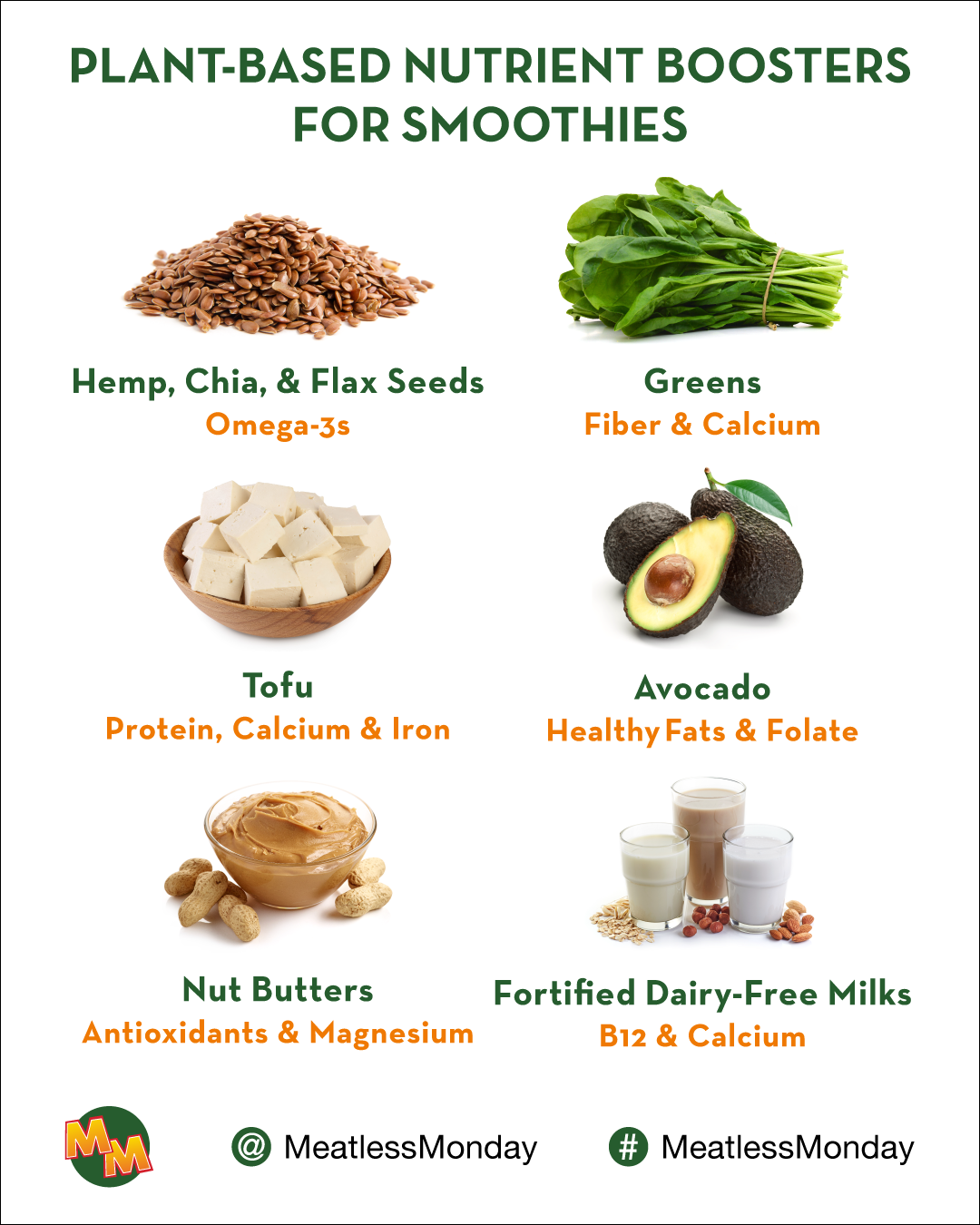 Who doesn’t love a smoothie? It’s the ultimate canvas for your culinary creations or it can be the perfect place to use up that leftover spinach, last scoop of peanut butter, and the final drops of almond milk.
Who doesn’t love a smoothie? It’s the ultimate canvas for your culinary creations or it can be the perfect place to use up that leftover spinach, last scoop of peanut butter, and the final drops of almond milk.
When it comes to smoothies and shakes, the combinations are truly endless. But besides being a convenient breakfast, lunch, or post-workout snack, smoothies can actually offer a big nutritional boost—given you fill them with the right ingredients. Using foods like nut butters, plant milks, seeds, vegetables, and powders can help fortify your diet and ensure you’re getting all the nutrients you need.
Best of all, these nutritional-boosting ingredients can also be added to other meals. You can blend them into sauces ,soups, and non-dairy ice creams or add them to oatmeal. This Monday, up your smoothie game with some extra healthy ingredients.
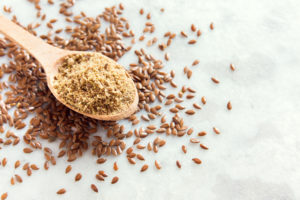 Seeds (Hemp, Chia, Flax)
Seeds (Hemp, Chia, Flax)
Seeds such as hemp, chia, and flax are nutritionally dense and can be effortlessly added into smoothies to provide extra fiber, healthy fats, and protein. Three tablespoons of hemp seed contain nearly 10 grams of protein, while chia seeds are an excellent source of omega-3 fatty acids. For some added texture, try sprinkling different types of seeds on top of this grounding green smoothie bowl.
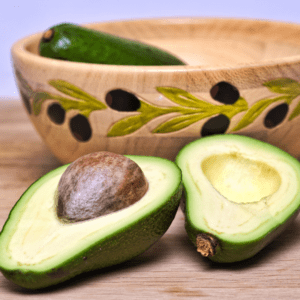 Avocado
Avocado
Sure, they go great on toast or mixed with salsa for an easy guacamole, but avocados are also an excellent source of healthy fats that can help keep you full and satiated. Avocados are well known for having healthy fat, but they are also a powerhouse of other nutrients, including vitamins C, E, K, and B6, folate, and potassium. Plus, they’re creamy and delicious, which makes them an ideal addition to smoothies like this green monster smoothie.
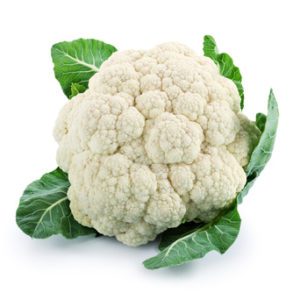
Cauliflower Rice
Now that it’s available in the frozen aisle of many national grocery chains, frozen cauliflower rice is a great way to add some fiber, vitamin C, folate, and choline (an essential nutrient that regulates mood, memory, and other functions) into your diet. Cauliflower rice is bland on its own, so there won’t be much of an off taste if you add it to flavorful smoothies, like this banana mocha breakfast smoothie from Sweet Potato Soul.
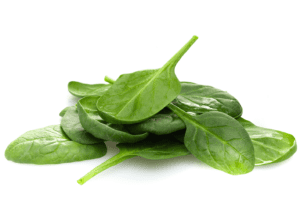 Leafy Greens
Leafy Greens
Vegetables aren’t everyone’s favorite food, but you can get finicky eaters to easily eat their spinach and kale by buzzing it into smoothies and shakes. By dropping a few handfuls of leafy greens to your morning smoothie, you’re effectively adding a wide range of nutrients including vitamins C, A, and E, folic acid, iron, potassium, magnesium, and calcium. To mask the taste of raw greens, try using a base of fruit juice or adding peanut or almond butter, like in this creamy almond butter and spinach shake from Detoxinista.
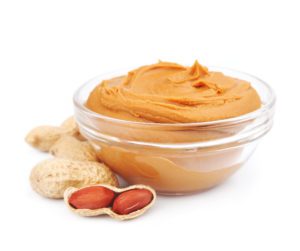 Nut Butters
Nut Butters
A spoonful of peanut, cashew, sunflower, or almond butter can make a smoothie taste like a nutty, toasty dessert. But a couple tablespoons of nut butter can also fortify your drink with protein, antioxidants, healthy fats, and essential minerals like magnesium and selenium. Nut butters are energy dense, making them a good breakfast food. This Monday morning, try whipping up this cinnamon peanut butter banana smoothie from Natalie’s Health to fuel your day.
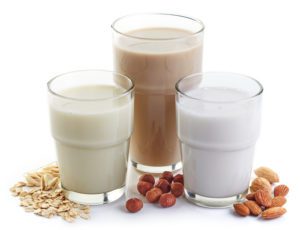 Plant Milks
Plant Milks
Today, most commercial plant milks (almond, pea, soy, oat) are fortified with vitamins and minerals such as B12 and calcium. And that fact makes them excellent smoothie ingredients, especially if you’re looking to replace animal products in your diet. Each variety of plant milk is a little different in taste and texture, but most of them add a pleasant creaminess when blended with other fruits and vegetables. This four-ingredient banana date smoothie is easy to make and tastes like a treat.
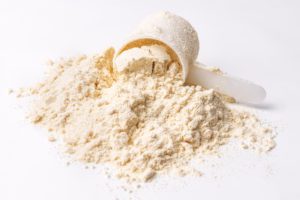 Plant-based Protein Powder
Plant-based Protein Powder
Although a plant-based diet provides the recommended daily amount of protein, adding a scoop of protein powder to a smoothie or shake is a good way to stay satiated or help your body recover after exercise. The protein element in these powders often comes from some combination of peas, seeds, rice, or soy. Protein powders are meant for smoothies so feel free to add it to any variety of frozen fruit and vegetable smoothie.
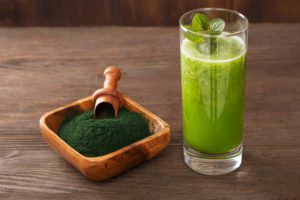 Spirulina
Spirulina
A scoop of dried algae in your morning smoothie may not sound appetizing, but the nutritional benefits of this superfood makes it worth it. Spirulina, also known as blue-green algae, is a good source of protein and a rich source of B vitamins. Research shows that spirulina may also have pain-relief and anti-inflammatory properties. And it really doesn’t taste bad at all when mixed into a sweet drink like this blue spirulina smoothie with vanilla and coconut from Veggiekins.
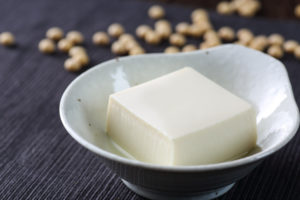 Tofu
Tofu
Its soft texture and relatively neutral flavor makes tofu a great ingredient to add into smoothies. Tofu is inexpensive, stays a few weeks in the fridge, and is a terrific source of plant-based protein, calcium, and iron. Throw a pack of silken tofu into this frozen blueberry tofu smoothie by The Spruce Eats and your perception of tofu will be forever altered—in the best way.
Tag @MeatlessMonday when you post your favorite smoothie with nutrient boosters. #MeatlessMonday

